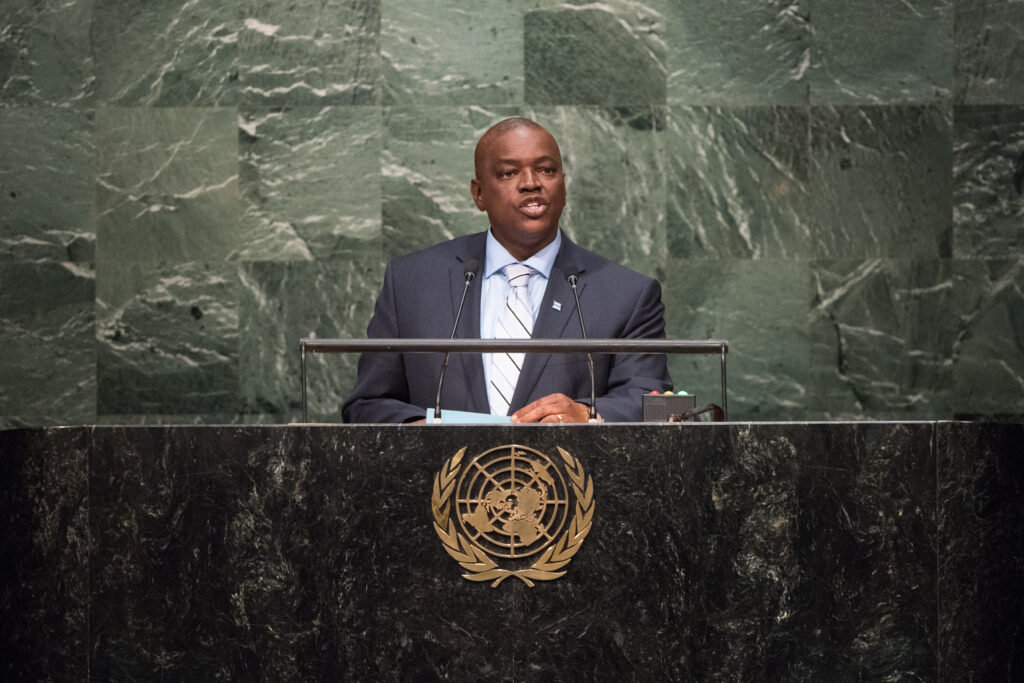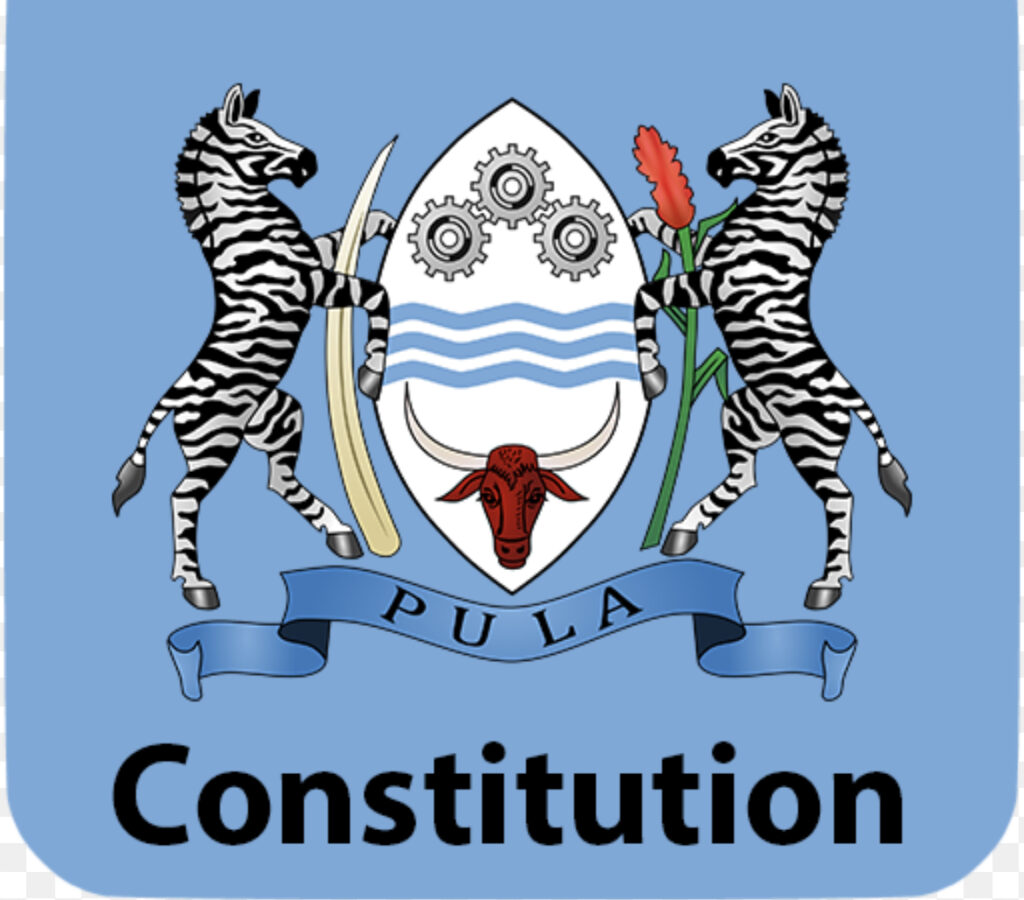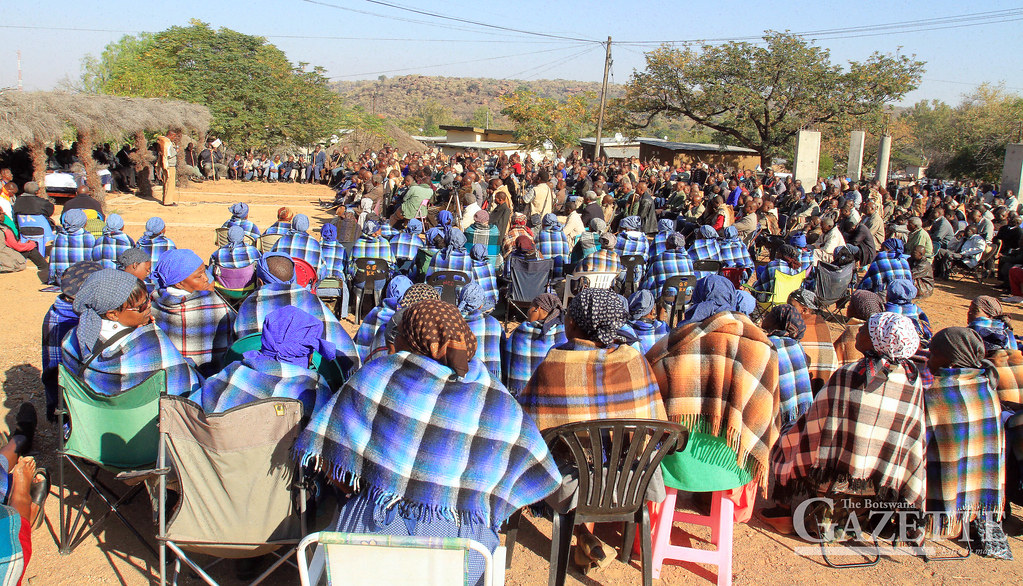- [ANALYSIS] What ‘Gender equality today for a sustainable tomorrow’ Means for Women’s Political Representation in the Southern African Development Community? - October 16, 2022
- Can Civic Tech Flip the Script of Youth Participation in Elections in the SADC Region? - June 3, 2022
- Constitutional Review in Botswana: The Nexus between Cultural-Liberal Values and its Implications for Foreign Policy - January 18, 2022

The constitution of Botswana has been a bone of contention for several reasons, including its exclusion of some human rights such as the right to education and its non-recognition of some societal groups – people living with disabilities and religious groups, amongst others. Also, absent from the constitution is the recognition of Batswana ethnic cultures even though they influence socio-political interactions, and to a certain extent, the country’s diplomacy.
The recent incidents of women being turned away from Kgotla in some villages across the country, for wearing pants instead of dressing ‘womanly’ to get COVID-19 vaccinations, as an example of how culture is embedded in societal interactions, make it imperative to highlight cultural norms and values in the envisaged new constitution. They clearly have a bearing on government institutions’ priorities and implementation of policies. The cultural values and norms also shape the state’s behavior internationally. As such, constitutional recognition will not only preserve them but will also institutionalize a co-existence with democratic liberal norms.
Botswana’s Constitutional Review Imperative
In his 2019 election campaign manifesto, Mokgweetsi Masisi, the current president of Botswana, declared a need for constitutional review. He then solidified his commitment to the process by appointing a Constitutional Review Commission on 17 December 2021. This progress was especially welcomed by Civil Society Organizations (CSOs) who had already begun community dialogues regarding the exercise.
Chief among the emerging issues in these meetings was the emphasis on an inclusive consultative process, which was indicative of Batswana’s desire to have all existing cultural identities, values, and norms reflected in the constitution, as well as the voices of all societal groups to be heard.

While in its current state the constitution upholds the protection of fundamental human rights and individual freedoms, it excludes the protection of collective values and norms that have been a part of Botswana societies since time immemorial. When these values have been expressed, they have been a source of contention.
As Botswana’s first president, Sir Seretse Khama, once said,
‘…a nation without a past is a lost nation, and a people without a past is a people without a soul.’
This warning is more relevant today than when it was first issued, as the fundamental values of Batswana have progressively been overshadowed by liberal norms espoused in the constitution.
Attempts, although failed, to drive Basarwa – a minority ethnic group in Botswana – from the Central Kalahari Game Reserve in the premise of development highlight the need to clearly stipulate the rights to participate in and maintain cultural values and practices in the constitution, in order to avoid confusion and marginalization.
It is worth noting that both cultural and liberal norms have a place in a modern constitutional order like Botswana’s. It is thus imperative for the country’s constitution to be drafted in such a way that these values and norms are reconciled in the interest of social cohesion.
Divergence and Similarities between Botswana Cultural Values and Liberal Democratic Norms

Democracy is an intrinsic part of the Botswana culture and there is no reason why the traditional cultural values of the Batswana people should not be clearly reflected in the constitution. Besides, recognizing the existing cultural diversity and including cultural norms will make the constitution and the country even more democratic. Chapter one and two of the South African constitution have successfully encapsulated these and can be used for benchmarking. The table below shows how Botswana’s cultural values and liberal ethos converge or diverge.
Table 1: Divergence and Convergence of Liberal Democratic Ethos and Botswana Cultural values
| Liberal Democratic Ethos | Botswana Cultural Values |
| Emphasis on individual/human rights | Emphasis on ethnic collective rights |
| Participatory democracy via elections, policy-making consultations | Participation via consultations in Kgotla meetings for policymaking |
| Liberalism/Multilateralism | Botho— Motho ke motho ka batho (no man is an island) |
| Equality and inequity. | Men lead, are superior and are mostly chiefs |
| Diplomats advancing national interests in foreign countries. | Diplomacy through dialogue as espoused by Setswana proverb “ntwa kgolo ke ya molomo” |
| Government institutions provide public goods/services. | The Chief governs the community and protects its welfare |
Cultural Leanings in Botswana’s Foreign Policy
There is near consensus in international relations scholarship that foreign policy is largely informed by leaders’ personalities and idiosyncrasies. Cultural socialization, therefore, shapes these personalities and consequently the foreign policy decisions they make. Recognizing these cultural factors in the constitution is imperative as their manifestations have been apparent in Botswana’s foreign policy decisions over the years.
In alignment with the nation’s cultural values of collectiveness, the founding president of the country, Sir Seretse Khama, embraced multilateralism. In a September 1969 speech, he recognized the United Nation’s role in advancing national interests through development cooperation and as a forum for international dialogue. Ian Khama, the former president of Botswana (from April 2008 to April 2018) and son of Seretse Khama, however, held the other end of the stick. His foreign policy was characterized by heavy criticism of his African counterparts based on what he perceived as a lack of commitment to upholding democratic principles. As such, he generally abstained from regional and sub-regional meetings such as those of the African Union (AU) and the Southern African Development Community (SADC).
While his behavior was undiplomatic, particularly because Botswana is a member state of these institutions, Ian Khama’s chieftaincy background had a lot to do with it. Traditionally, as a chief ‘mafoko a Kgosi a agelwa mosako’ or ‘mafoko a Kgosi a mantle otlhe’ (lit. words at the communal meeting place are all beautiful), in this context is often interpreted as the notion that the chief’s word and decisions are final and suggests that he is a ‘law unto himself.’ When this is translated into his foreign policy stance, it means he is not bound by international norms but could make proclamations based on his moral standing.
That notwithstanding, other presidents after Sir Seretse Khama toed the line with his founding principles and in alignment with cultural values. The deep cultural embeddedness of the saying ‘ntwa kgolo ke ya molomo or we jaw jaw not war war’ – loosely translated that the highest form of war is dialogue – has been the bedrock of Botswana’s peaceful democracy and has given credibility to its mediation efforts across the African continent. As such, former presidents Sir Ketumile Masire and Festus Mogae, both facilitated peace processes in the Democratic Republic of the Congo and South Sudan, respectively. Masire also served as Chairman of the International Panel of Eminent Personalities investigating the circumstances surrounding the 1994 Rwanda Genocide from 1998 to 2000, while Mogae went on to be an awardee of the Mo Ibrahim Prize for Achievement in African Leadership.
A constitution is a fundamental tool upon which a country’s rule of law is derived. If it is found to be inconclusive as is the case with the Botswana constitution, it is a potential source of instability especially when founding principles that promote cohesiveness are excluded from it. As such, it is imperative that the mooted constitutional review process recognizes and affirms the cultural values and practices of Batswana.
- Is it necessary to review Botswana’s constitution?
- Do both cultural and democratic liberal norms have a place in the envisaged constitution?
- How has culture informed Botswana’s foreign policy?
Suggested Readings
Constitution of Botswana (1966).
“Chapter 1. Introduction: Liberalism and the Accommodation of Cultural Diversity“. Equal Recognition: The Moral Foundations of Minority Rights, Princeton: Princeton University Press, 2014, pp. 1-37.
Denbow, J. & Thebe P. C. (2006) Culture and Customs of Botswana. Westport, Connecticut. London: GreenwoodPress.




